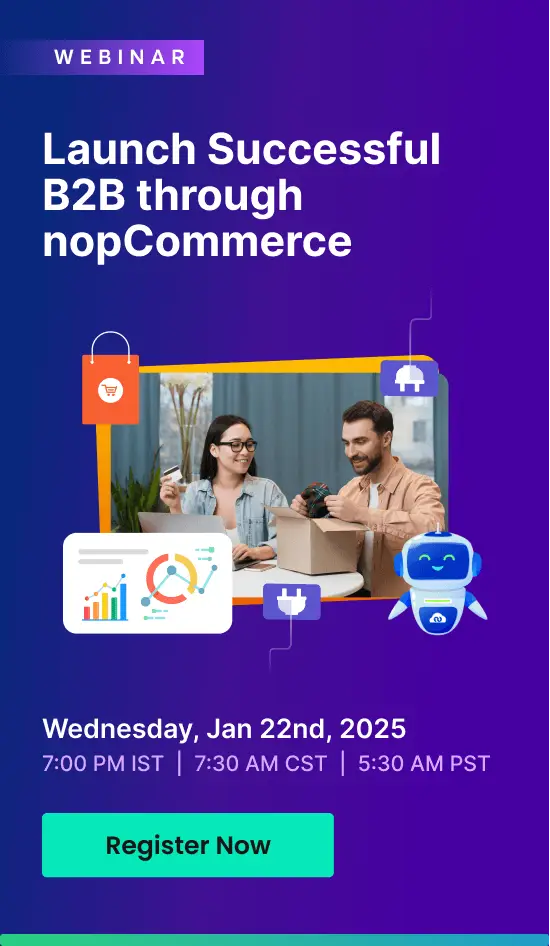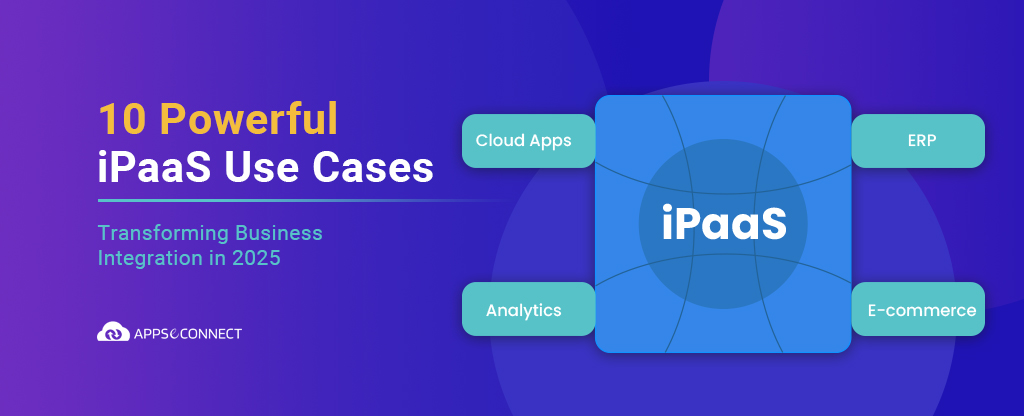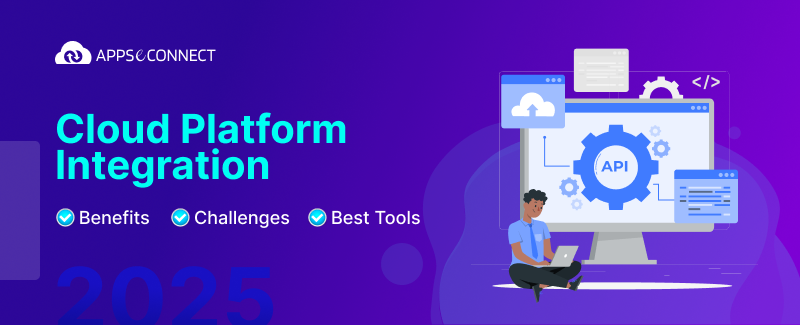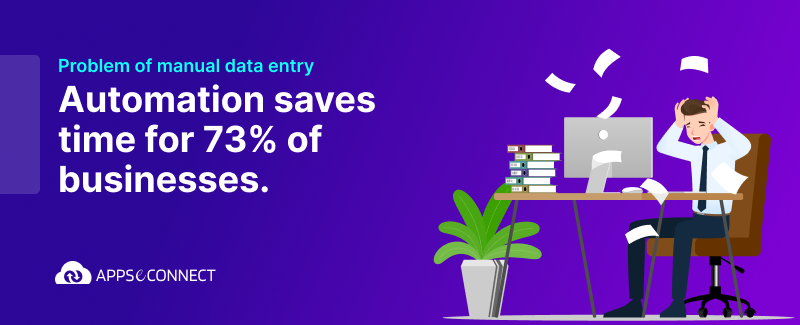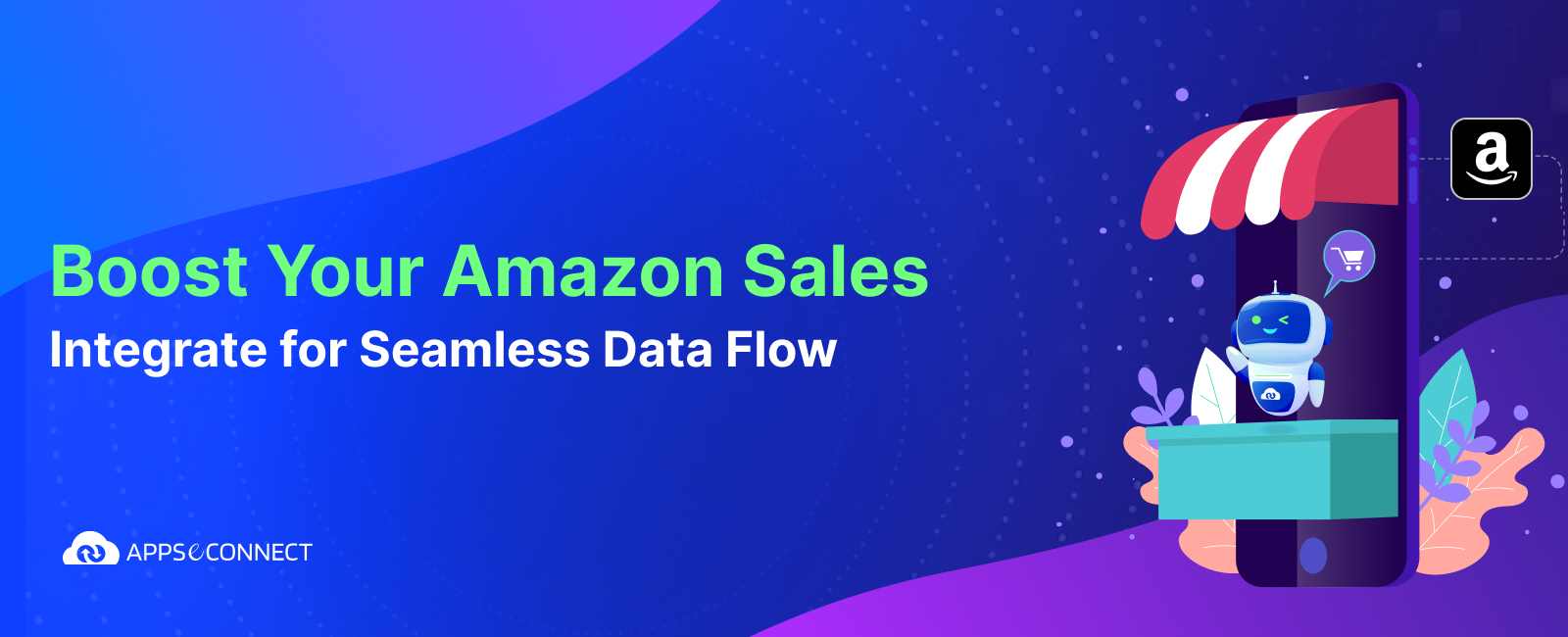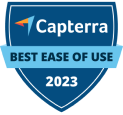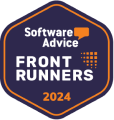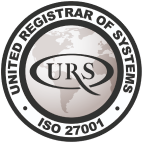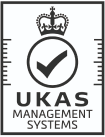Are you willing to build a connected enterprise landscape at your organization and gain from integrated workflows, smart automation, and data connectivity? Well, iPasS is your solution. In this rapidly evolving business world, connecting various applications and systems across business infrastructure has become more crucial than ever. But how are you going to achieve that objective? This is where iPaaS steps in. With the vast number of iPaaS use cases, it stands out as the ideal way of bringing all the applications in your environment under the same umbrella.
Wondering what does iPaaS stand for? iPaaS stands for integration platform as a service. The platform offers powerful solutions for businesses to streamline their operations. It integrates various data sources and applications while boosting efficiency, decision-making, and customer experience. iPaaS has also emerged as a central hub that facilitates the integration of various organizational components.
As per IDC, in 2023, the worldwide public cloud services market reached 669.2 billion USD. This involves a growth rate of 19.9% compared to 2022. Platform as a Service (PaaS), which includes iPaaS, accounted for 18.4% of the market and showed significant growth. So, here we will take you through some of the most vital use cases of iPaaS and its associated benefits.
What is iPaaS?
At its core, iPaaS is a suite of cloud services that allow businesses to develop, execute, and govern various integration flows between disparate systems and applications. Unlike traditional integration methods, there are multiple benefits of iPaaS. This integration methodology offers a more scalable, flexible, and user-friendly approach to integration. It is designed specifically to handle various integration challenges like connecting cloud applications, managing complex data flows between systems etc. According to Forrester, organizations using iPaaS solutions experienced a 3-year ROI of 410%.
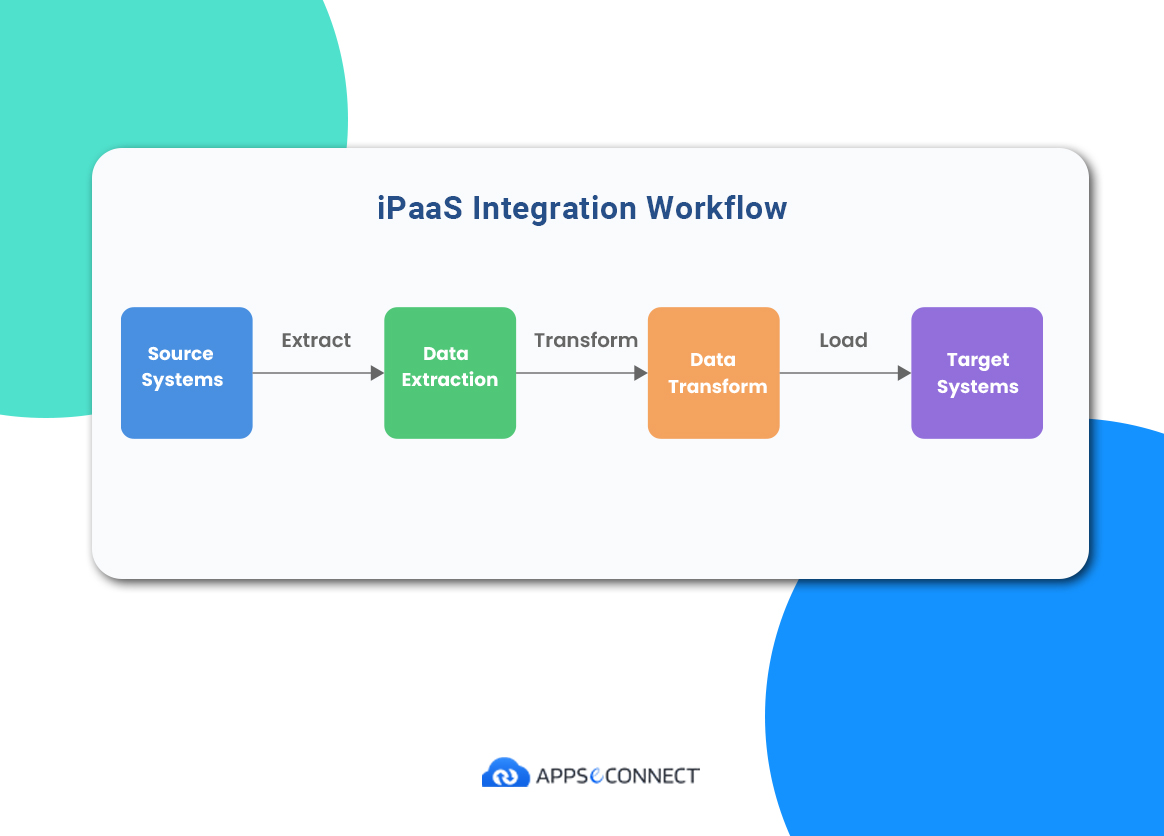
With iPaaS applications, you will be able to optimize your organizational processes and stay competitive. It is one of the most powerful solutions that allows seamless connectivity and data exchange between systems, applications, and platforms. The iPaaS market is projected to grow significantly. As per Gartner, the market demonstrated a strong growth rate of 30.7% in 2023, reaching 7.77 billion USD in revenue. In the upcoming years as well, we expect a steep growth in iPaaS market demands.
The iPaaS market is going to be driven by some of the highly advanced trends in integration including advanced demand for SaaS integration, API-centric approaches, no code integration, integration of AI and ML, etc. The trend of using iPaaS for E-Commerce and supply chain management has also been on the rise. Companies like APPSeCONNECT are also making it highly convenient for organizations to integrate their disparate systems.
Forrester assessed 15 iPaaS offerings in their Q3 2023 report, focusing on areas like connectivity, ease of use, and operational efficiency. As per the analysis, achieving business agility and automating the various business processes are the top priorities for iPaaS buyers. This highlights the growing importance of iPaaS.
Book a Free Consultation to Automate Your Business with iPaaS!
Key Benefits of iPaaS for Business Transformation:
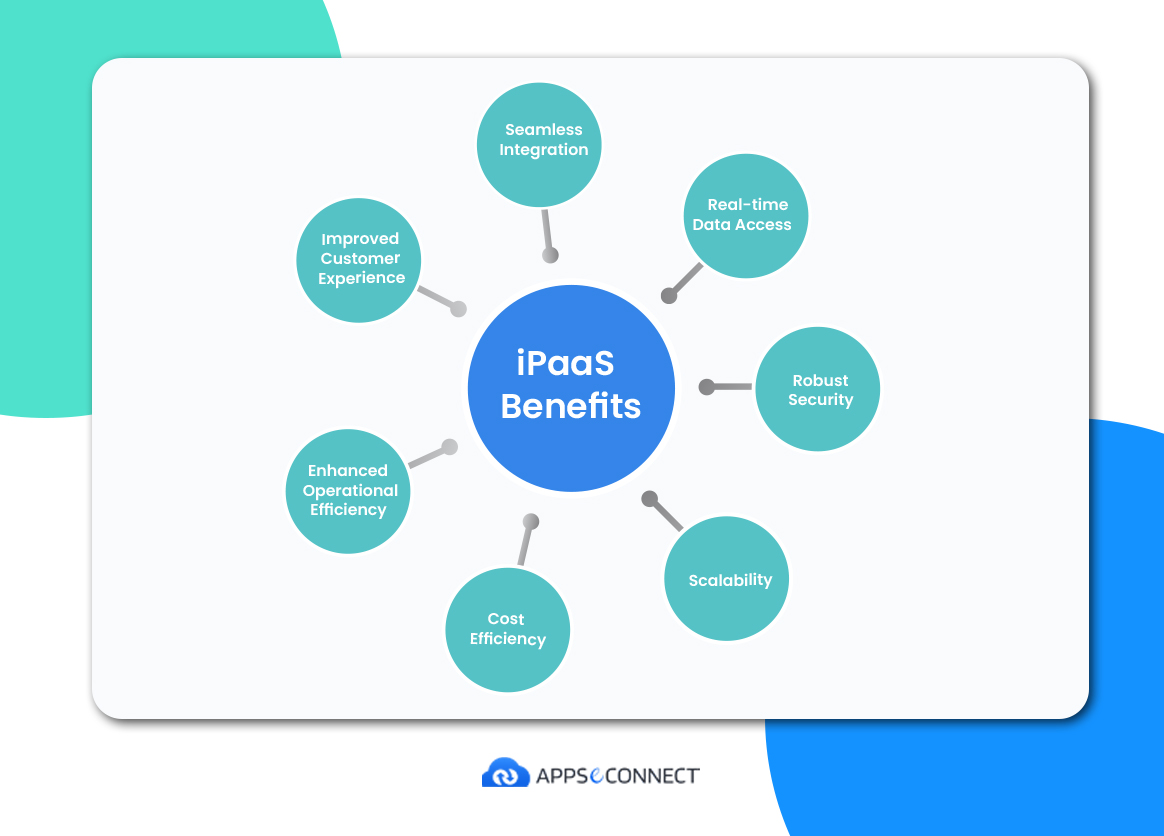
Here are some of the major “benefits of iPaaS” that you need to know of:
1. Seamless integration:
iPaaS allows you to sync your business systems. It integrates various applications and data sources regardless of whether they reside in the cloud or on-premise. This integration allows data consistency and easy information sharing.
2. Real-time data access:
With iPaaS, your data across different systems is consistent. This offers you real-time insights to act upon. You have updated data across your systems as soon as any change occurs. This helps you enhance your business operations.
3. Scalability:
This is yet another important iPaaS benefit. As your business continues to grow, iPaaS automatically adapts to the change. This allows you to add more integrations during the growth period. You can even scale down your system during slower times.
4. Cost-efficiency:
iPaaS integration is cost-efficient. iPaaS companies can eliminate the need for in-house integration systems. You can cut down on manual labor, easily automate workflows, and simplify the management of APIs.
5. Enhanced operational efficiency:
With iPaas integration, your operational efficiency is improved. By automating the workflows and processes, you can free up your team to focus on other strategic tasks. Workflow automation helps you to cut down on manual tasks.
6. Improved customer experience:
In this era, where customer experience serves as a business differentiator, iPaaS companies shine bright. iPaaS allows your customers to have an improved experience. This mainly comes from data consistency and workflow automation.
7. Robust security:
In a highly data-driven business scenario, security is very important. iPaaS solutions will help you to enjoy the benefits of proper security measures. This includes data encryption and secure data transfer protocol. That way, you can protect your data during various business transactions.
So, boost your business efficiency and streamline workflows with iPaaS integration.
10 Real-World iPaaS Use Cases:
Now let us take you through some of the major “Ipaas use cases examples”:
1. Supply Chain and Logistics Automation:
iPaaS facilitates supply chain and logistics integration by connecting the various systems involved in these processes such as suppliers, distributors, manufacturers, and retailers. By integrating the systems, iPaaS helps in real-time data sharing, collaboration, and process automation across the entire supply chain. This improves the supply chain visibility and enhances logistics processes.
One example of iPaaS implementation in supply chain and logistics automation is The Mako Group, a US-based leading logistics company. The company used Magento eCommerce as their storefront and the SAP B1 as their back-end ERP system. It was facing multiple challenges with transferring data from 2 different Magento Websites to a single SAP Business One Company Database. Handling B2B and B2C customers also became a challenge. APPSeCONNECT helped The Mako Group in navigating these challenges. There was 100% data sync between the disparate systems. The overall business efficiency increased by 2.5x times. The integration also allowed the company to significantly increase its back-office efficiency.
2. eCommerce Order Processing:
E-commerce businesses use different types of tools and technologies to manage their operations. This includes online shopping carts, inventory and warehouse management platforms, customer relationship management systems, and much more. Each of these tools generates user data and syncing the data becomes a complex affair. iPaaS use cases help connect all the systems, making data flow smooth and efficient. iPaaS platforms also automate repetitive tasks, leading to minimized manual labor.
ASICS, which happens to be a global footwear company, faced multiple challenges in connecting various systems across its seven expanding brands worldwide. ASICS chose MuleSoft’s Anypoint Platform to bring about a transition in its business. This implementation led to 2.5x times faster project delivery and the customer experience improved significantly. However, with APPSeCONNECT’s iPaaS services for E-Commerce, it is expected that the outcome could have been even better. APPSeCONNECT comes with features like business logic orchestration and process flow designer which makes it an ideal solution for E-Commerce businesses out there.
Here’s a table of comparison between AppSeCONNECT and MuleSoft:
| Feature | APPSeCONNECT | MuleSoft |
| Pricing | ✓Significantly lower cost with flexible pricing models | High enterprise costs |
| Implementation Time | ✓Rapid deployment (weeks vs months) | Longer implementation |
| Ease of Use | ✓Code-free visual interface with intuitive design | Steeper learning curve |
| Pre-built Connectors | ✓Extensive library with business-specific adapters | Limited out-of-box |
| Technical Support | ✓Personalized support with direct developer access | Tiered support system |
| SMB Suitability | ✓Designed for businesses of all sizes | Enterprise-focused |
Want to optimize order management? Book a Free Demo with APPSeCONNECT today!
3. ERP and CRM Synchronization:
iPaaS facilitates seamless ERP and CRM integration. Customer relationship management systems record customer data with enterprise resource planning to manage finance, inventory, and other business functionalities. The perfect synchronization between the two systems is really important for perfect data processing and better customer service. ERP and CRM integration comes with multiple benefits, starting with improved data accuracy, automated synchronization, reduced manual effort, etc.
The healthcare industry is a highly regulated one. It has stringent data privacy and security requirements. So, integrating various systems can be challenging. However, iPaaS has made it possible to integrate the healthcare systems. One such iPaaS example is the Northwest Kidney Centers. Northwest Kidney Centers used iPaaS to integrate its electronic health records (EHR) system with Salesforce, a popular CRM system. This resulted in increased efficiency and reduced administrative workload. In fiscal 2019, Northwest Kidney Centers offered 292,000 dialysis treatments for more than 1,800 patients. These numbers continued to increase post its platform integration.
4. Automated Accounting & Invoicing:
The finance sector is heavily reliant on iPaaS integration. With iPaaS, you can easily automate the various accounting processes. You can sync the invoice, billing status, payment processes and much more. This offers you real-time business insights. iPaaS companies also allow seamless data transfer and enhanced workflows between the different accounting tools in your organization. The invoicing process can be automated and sent to the customer whenever a sale is made. This cuts down on time significantly and the process becomes error-free.
KPMG, which happens to be one of the largest finance service providers in the world, was facing multiple challenges with its manual payment processing system. The company chose iPaaS to build an integration layer that could connect the payment processing system with various other systems including financial management systems and bank accounts. The iPaaS solution helped KPMG to automate payment processing. This reduced manual efforts and improved efficiency. The integration layer offered a real-time view of accounting and payment status.
5. B2B Partner Onboarding:
iPaaS allows businesses to connect with partners and suppliers more efficiently. This helps in the faster onboarding of partners and reduces time to market. The incorporation of B2B integration ensures that all the B2B communications are in the right format. This gives a competitive edge to the B2B businesses out there. It also ensures that businesses can improve security standards and audit the data flow to partners.
Puma, the global sports apparel company, used Seeburger’s iPaaS integration to manage its B2B integrations. This includes B2B onboarding, integrating the SAP ERP system with their E-Commerce platform, warehouse management, order management, etc. The company helped in the integration of PUMA’s central ERP platform, SAP S/4HANA, and the EEMEA SAP system through its existing middleware, SAP Process Orchestration. Because of Seeburger, Puma was also able to automate its order-to-cash process. Its visibility over the supply chain improved.
6. Cloud & On-Premise Integration:
iPaaS allows enterprises to build, deploy, and maintain integration flows that connect applications and data hosted in the private and public clouds and between the cloud and on-prem data centres. This helps eliminate data silos and allows smooth communication between the system. Companies also need not completely restructure their original infrastructure while shifting to the cloud.
The Coca-Cola Company was completely on-premise just a few years back. So, it was looking for a way to move to a cloud-first approach. The company adopted a hybrid integration approach using MuleSoft Anypoint Platform which allowed it to connect both cloud-based and on-premise applications. This allowed it to leverage existing on-prem investments while transforming to a cloud-centric architecture.
7. Real-Time Data Analytics and Reporting:
For larger enterprises, iPaaS facilitates real-time data analytics and reporting. This allows companies to have a real-time view of their data. It ensures that the data across various platforms are synchronised. In this way, iPaas integrations offer businesses better decision-making ability. Business owners can make decisions and develop strategies based on the data available at a particular timestamp. The various processes of the organization are also streamlined because of the improved data synchronization process.
Santander Bank, one of the largest global banks, has 9 million customers. It operates in all segments of financial markets. The bank has a network of 3,696 branches and service centres and 18,312 ATMs. This accounts for 50 per cent of the total profit of the group. With such a vast customer base, Santander Bank was facing multiple challenges while dealing with customer data. So, it used iPaaS to manage integrations across its various financial systems. This allowed for real-time data analytics and reporting. The implementation not only reduced the time required to identify and address issues but it also improved the overall system reliability. The bank was able to offer a seamless customer experience.
8. SaaS App Connectivity for Startups:
Software-as-a-service (SaaS) applications have become a crucial part of enterprises these days. They dominate various technological stacks and help streamline business operations. With the growing importance of SaaS applications, there is an emerging need for integration. iPaaS allows SaaS app connectivity for startups. This allows startups to bring all their applications under the same umbrella without any hindrance.
Titan Brands took the help of Celigo iPaaS provider to streamline connectivity between its various SaaS applications. This helped in ensuring seamless data flow across different platforms. Titan was also able to grow its business 10x times within 5 years. Other than Celigo, APPSeCONNECT also helps with SaaS app connectivity. In fact, its exclusive set of features makes it a better alternative to Celigo.
Want to know more about APPSeCONNECT vs Celigo? Click here
9. Marketing & Customer Data Unification:
iPaaS integration has proved itself to be extremely vital for marketing and customer data unification. The data synchronization process between the various systems can help improve the customer experience for the different business sectors. It also increases collaborations between the sales and marketing teams.
Luminox, an acclaimed watch brand based in the USA, uses E-Commerce to operate. The company was facing multiple challenges while integrating Shopify and SAP Business One. APPSeCONNECT understood the problem and came up with an advanced solution to mitigate the challenge. APPSeCONNECT’s SAP Business One + Shopify allowed Luminox to bring all its data onto a single platform. The time to market reduced drastically. The company was also able to offer better services to the customers.
10. AI and Machine Learning-Driven Integrations:
Enhanced AI and ML-driven integration is really important for businesses belonging to various industries including retail, healthcare, logistics, etc. iPaaS provides the necessary infrastructure to optimize the use of AI and ML technologies within the company. It offers advanced capabilities that enhance decision-making and streamline business operations. In a survey conducted by McKinsey, 78% of respondents say their organizations use AI in at least one business function. This is up from 72% in early 2024 and 55% a year earlier. This highlights the increased popularity of AI-based technologies among businesses of today.
Walmart, the largest US-based retail service provider, paved the path for AI-powered stores in the future. The company introduced IRLs (Intelligent Retail Labs) with futuristic technologies for inventory management, improved shopping experience, voice shopping, in-store navigation, etc. This completely changed the outlook of the retail industry. Grand View Research forecasts the retail market to reach 40.74 billion USD by 2030, growing at a CAGR of 23.9% from 2022 to 2030, owing to the rapid use of AI integration in the sector.
How to Choose the Best iPaaS Provider in 2025?
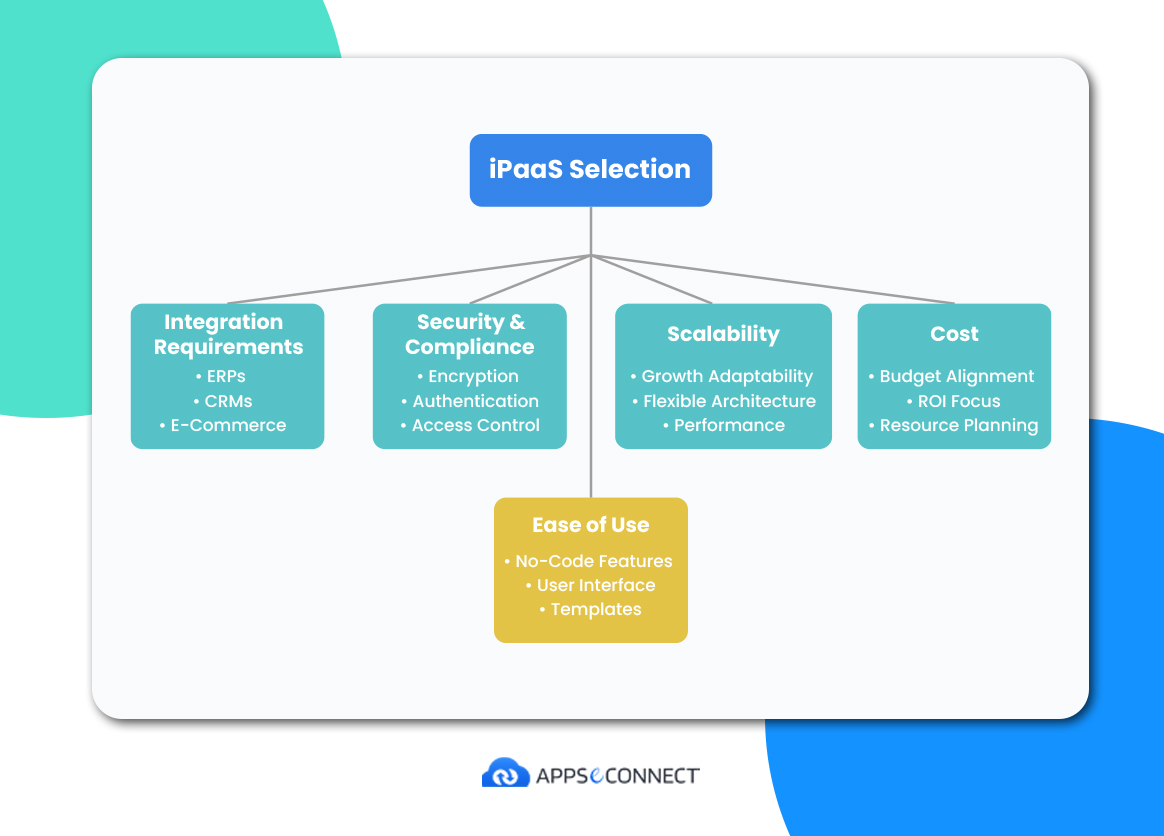
While choosing your iPaaS solution, there are quite a few things that you need to consider. Here are some of the major points for consideration for US-based enterprises looking forward to opting for iPaaS integration:
1. Integration requirements:
You must ensure compatibility with ERPs, CRMs, and accounting tools. Look for solutions that integrate E-Commerce platforms, payment gateways, inventories, and warehouses. Your choice of platform will also depend on the exact iPaaS use case applicable to your business.
2. Scalability:
Scalability ensures that your iPaaS solution can easily adapt as your business grows. Look for platforms that can handle flexible architecture. Also, consider the integration capabilities and adaptability for emerging technologies.
3. Ease of Use:
Your iPaaS solution must be easy to use. That way, it will become easier for you to create a simplified workflow and manage integration. Also, look for an iPaaS solution that has preconfigured templates and no-code capabilities.
4. Cost:
Cost considerations are important to ensure that your iPaaS solution aligns with your budget and delivers a strong return on investment. This will save you from excessive financial burden.
5. Vendor Support:
Consider US-based support options and SLAs before choosing your service provider. Also, consider the reliability of the service provider.
6. Regulatory Compliance in iPaaS:
One of the most important considerations while selecting an iPaaS provider is the security of the data being processed. iPaaS companies must identify if the data includes personally identifiable information (PII) or falls under the following regulatory requirements:
- GDPR (General Data Protection Regulation)
- PCI (Payment Card Industry Data Security Standards)
- US Private Shield framework
- HIPAA (Health Insurance Portability and Accountability Act)
- FERPA (Family Educational Rights and Privacy Act)
Leveraging SOC 2 (Type II) reports are also important. SOC ( System and Organization Control) reports are independent auditor assessments that are responsible for evaluating the service providers’ processes and controls. Requesting SOC 2 reports from iPaaS providers can offer valuable insight into risk management, security practices, and compliance reports. SOC 2 reports cover a wide range of services including SaaS and iPaaS solutions.
7. Adherence to Emerging Trends in iPaaS Integration:
North America currently dominates the iPaaS market, leveraging its strong IT infrastructure. Today’s iPaaS market is heavily reliant on emerging trends such as API-first integration, hyper-automation, and AI-driven decision-making. As per reports, 55% companies use API management for multi-cloud environments. Companies also make use of cloud service automation for streamlining workflows. In fact, 40% of organizations have already implemented cloud-based orchestration to streamline their workflows.
There has also been a rise in low-code/no-code integration systems. Increased focus is also given to compliance and security requirements. So, companies are more inclined towards choosing one such integration solution that will allow them to stay on par with the emerging trends and bring enormous benefits to their organizations. APPSeCONNECT’s strong adherence to emerging trends makes it suitable for companies looking for a future-ready integration platform to streamline their business operations.
You can also read more about iPaaS vendor comparison by clicking here!
Choosing APPSeCONNECT For Your iPaaS Integration Needs:
So, if you are willing to choose the best iPaaS integration service provider for your business that will allow you to reap the various benefits of iPaaS integration, then APPSeCONNECT is your no. 1 option. APPSeCONNECT comes with endless features and functionalities which pose it as an ideal solution for companies looking forward to boosting their business operations. Its adherence to US-specific compliance and regulatory standards makes it a safe solution for iPaaS integration.
Here’s a look at some of the important features of APPSeCONNECT:
- Business logic orchestration
- Process flow designer
- Smart automation
- Pre-built templates
- Data mapping
- API integration
- Cloud agent security
APPSeCONNECT: The Best iPaaS Solutions for Real-Time Data Processing
You can use APPSeCONNECT’s pre-built connectors for SAP-based integrations. APPSeCONNECT also boasts of having a highly knowledgeable team of iPaaS integration experts who make it possible for companies to navigate the various integration challenges. APPSeCONNECT’s credibility is reflected in the reviews offered on the G2 platform:
APPeCONNECT’s strong adherence to security measures and compliance requirements makes it an ideal tool for your integration needs. The company ensures compliance with GDPR, CCPA, and SOC 2 by providing role-based access controls, encrypted data transfers, and secure authentication.
For industries like finance and healthcare, regulatory compliance is crucial. APPSeCONNECT provides HIPAA and SOC 2-compliant integration solutions for handling sensitive data.
APPSeCONNECT strongly abides by US-specific compliance regulations like:
- ISO 27001 certified
- SOC 2 (Type II) certified
- GDPR Compliance
- Encryption at Rest and in transit (256-bit AES)
- Robust corporate governance
It also takes the help of various advanced data protection techniques to ensure that sensitive data remain secure at all times:
- SSO (SAML)
- RBAC (Role-Based Access Control)
- SCIM provisioning
- 2FA (Two-Factor Authentication)
- Domain capture
- IP allow listing
- Audit logs
The dedicated security team at APPSeCONNECT also makes use of advanced techniques like real-time data monitoring and third-party penetration to sieve vulnerabilities in your environment.
A US-based financial firm integrated Salesforce with NetSuite using APPSeCONNECT while maintaining SOC 2 compliance. This allowed the firm to ensure that all the compliance needs were well addressed and the business group was able to carry out its daily operations.
APPSeCONNECT’s unique take on iPaaS integration and its highly advanced features make it stand out among other global iPaaS leaders like Workato, Jitterbit, Celigo, and SnapLogic. You can also go through APPSeCONNECT’s CRM-ERP integration guide to learn more about the company’s advanced integration strategies.
Here’s a look at a detailed comparison between the top iPaaS vendors:
| Feature Category | APPSeCONNECT | Workato | Jitterbit | Celigo | SnapLogic |
| Pricing & TCO (Total Cost of Ownership) | ★★★★★ Lowest TCO with flexible pricing | ★★☆☆☆ High-cost enterprise pricing | ★★★☆☆ Mid-range with add-on costs | ★★★☆☆ Tiered pricing, can become costly | ★★☆☆☆ Premium pricing, high volume costs |
| Implementation Time | ★★★★★ Rapid Deployment (2-3 weeks typical) | ★★★☆☆ 1-3 months typical timeline | ★★★☆☆ 1-2 months with expert help | ★★★★☆ Fast for NetSuite, slower for other | ★★☆☆☆ 3+ months complex setup |
| Pre-built Connectors | ★★★★★ 300+ with business process templates | ★★★★☆ 400+ but less industry-specific | ★★★☆☆ 200+ connectors basic templates | ★★★☆☆ Strong NetSuite limited elsewhere | ★★★★☆ 500+ connectors lack depth |
| Ease of Use | ★★★★★ Intuitive interface, no coding required | ★★★★☆ Good UI but steeper learning | ★★★☆☆ Developer-oriented, less intuitive | ★★★★☆ Simple for basics, complex for custom | ★★★☆☆ Pipeline UI, technical learning |
| Technical Support | ★★★★★ Direct developer access, 24/7 | ★★★☆☆ Tiered support, premium costs | ★★★☆☆ Good but slow response | ★★★★☆ Responsive for paid accounts | ★★★☆☆ Limited to business hours |
| Scalability | ★★★★★ High throughout, auto-scaling | ★★★★☆ Good enterprise scalability | ★★★★☆ Handles high transaction volume | ★★★☆☆ Mid-level performance | ★★★★★ Large-scale data handling |
| Industry-Specific Features | ★★★★★ Deep Vertical specialization | ★★★☆☆ Generic workflows, less specialized | ★★★☆☆ Limited industry specialization | ★★★★☆ Strong NetSuite focus only | ★★☆☆☆ Generic approach, not specialized |
As you can see, APPSeCONNECT’s ease of use, implementation time, customer support, and integration flexibility are some of the factors which set it apart from its competitors. While MuleSoft, Workato, and Celigo follow in-built security features and various compliances, APPSeCONNECT makes use of role-based access controls, encrypted data transfers, and secure authentication to adhere to compliances like ISO 27001, GDPR, and SOC II making it stand out.
So, if you are looking for a well-rounded integration tool that will serve all your integration needs on a budget, then the best option that you have in hand is APPSeCONNECT: The ultimate tool for all your integration needs!
Here’s a detailed comparison of the various iPaaS integration features which will help you choose the right tool for your integration needs:
| Feature | APPSeCONNECT | MuleSoft | Celigo | Seeburger |
| No-Code/Low-Code Platform | ✅ | ❌ | ✅ | ❌ |
| Hybrid Cloud & On-Premise | ✅ | ✅ | ❌ | ✅ |
| AI-Driven Integrations | ✅ | ✅ | ❌ | ❌ |
| B2B Partner Onboarding | ✅ | ❌ | ❌ | ✅ |
| Best for SMEs & Enterprises | ✅ | ❌ | ✅ | ❌ |
Although tools like MuleSoft and Celigo do come with a lot of enhanced features, APPSeCONNECT’s extraordinary pricing model makes it a superior iPaaS solution for companies that are looking forward to meeting their integration needs on a budget. Click here to learn more about APPSeCONNECT’s pricing models.
Wrapping Up:
As companies continue to become involved and switch to cloud-based services, the importance of robust iPaaS solutions can’t be undermined. iPaaS is not just about connecting the systems. It is more about doing so to support the ever-changing needs of dynamic modern businesses.
So, if you are willing to implement iPaaS in your environment, then you may opt for APPSeCONNECT integration. APPSeCONNECT stands out as one of the best iPaaS companies for integrating your business applications. With APPSeCONNECT, you can also drive business growth and profitability.
To learn more about APPSeCONNECT, visit our website and go through our product demo. You may also refer to the available resources on our website to learn more about our product.
See how APPSeCONNECT can save 30% on integration costs—Get a Demo Now.
Frequently Asked Questions
iPaaS is a cloud-based integration method. It allows you to easily integrate the various applications of your environment without the need for extensive coding.
APPSeCONNECT poses itself as an ideal tool for iPaaS integration. These low-code integration tools come with different connectors and pre-defined templates which allow you to bring the different applications under the same roof.
Always make it a point to look for one such iPaaS integration tool that comes with strong security features and compliance adherence. This will help protect your sensitive data from any kind of breaches.

